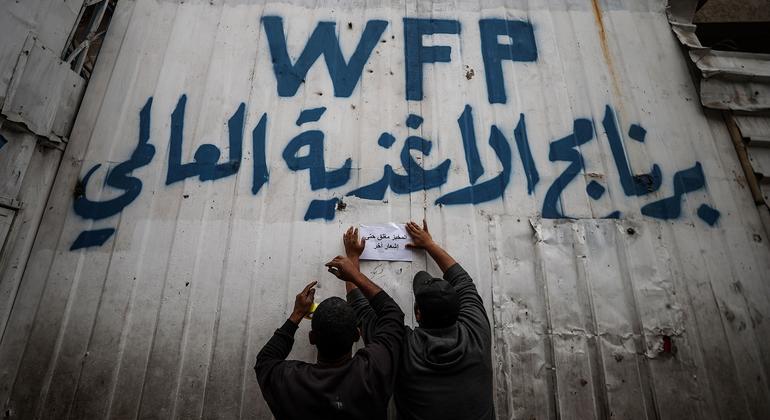New Delhi / Brussels — In a significant step toward strengthening maritime security cooperation, the European Union and India are set to conduct a joint naval exercise from June 1–3 in the Indian Ocean. The operation marks a new chapter in strategic collaboration between Europe and South Asia amid rising global instability and growing concerns over freedom of navigation in key sea lanes.
The three-day exercise will bring together the Indian Navy and two European Union Naval Force (EUNAVFOR) frigates — the Antonio MARCEGLIA (Italy) and the REINA SOFIA (Spain) — under the framework of EUNAVFOR Operation ATALANTA. It will focus on advanced counter-piracy operations, tactical maneuvers, interoperability drills, and improved communication protocols, reflecting both sides’ shared commitment to safeguarding international waters.
A Strategic Signal in Troubled Waters
This exercise comes at a time when maritime routes — especially those crossing the Indian Ocean — have become increasingly vulnerable. From piracy off the Horn of Africa to illegal fishing and narcotics trafficking, the region is facing a complex array of threats that no single nation can address alone.
“This is more than just a military drill,” said a senior official from the European External Action Service (EEAS), who spoke on condition of anonymity. “It’s a tangible demonstration of the EU-India partnership in promoting a rules-based maritime order in the Indo-Pacific.”
Both parties have emphasized their adherence to international law, particularly the United Nations Convention on the Law of the Sea (UNCLOS). Their joint statement reaffirmed support for freedom of navigation, peaceful dispute resolution, and respect for sovereignty — values that are increasingly contested in various parts of the world.
Building on Recent Diplomatic Momentum
The upcoming exercise follows a series of high-level diplomatic engagements between the EU and India earlier this year. In February 2025, the College of Commissioners visited New Delhi, where one of the key outcomes was to deepen cooperation on maritime domain awareness — a critical component in detecting and responding to threats at sea.
In March, the fourth EU-India Maritime Security Dialogue further solidified plans to counter illicit maritime activities, including smuggling and illegal fishing. That dialogue was followed by a visit from Vice Admiral Ignacio Villanueva Serrano, Operation Commander of EUNAVFOR ATALANTA, who met with Indian naval leadership in April to explore ways to enhance bilateral coordination.
“India has been a reliable partner in maintaining stability in the Indian Ocean Region,” said Admiral Villanueva during a press briefing in New Delhi. “Our navies have already worked closely in the Gulf of Aden and Gulf of Guinea, and now we are taking our relationship to the next level.”
A Legacy of Cooperation
Naval cooperation between the EU and India is not new. Since 2008, EUNAVFOR’s Operation ATALANTA has played a crucial role in combating piracy in the Gulf of Aden, protecting vital shipping lanes used by vessels from around the world. Over the years, the mission’s mandate has expanded to include countering narcotics trafficking, arms smuggling, and illegal fishing.
Indian Navy ships have frequently conducted Passing Exercises (PASSEX) with EUNAVFOR warships in the Indian Ocean, but this will be the first formalized, multinational joint exercise involving EU forces and the Indian Navy under a structured command framework led by respective Maritime Operations Centres.
Furthermore, the Indian Navy has been actively supporting humanitarian missions coordinated by ATALANTA, including escorting World Food Programme-chartered vessels through high-risk zones.
Regional and Global Implications
The Indian Ocean remains a geopolitical hotspot. With China expanding its naval presence through port investments and military deployments across the region, both the EU and India see value in reinforcing partnerships that uphold open seas and transparent governance.
While neither side has explicitly named any adversary, analysts note that such exercises send a clear signal about shared strategic priorities.
“The EU-India naval exercise is not just about piracy or fisheries,” said Dr. Clara Martínez, a defense analyst at the European Institute for Security Studies (EUISS). “It’s about building trust, operational synergy, and long-term resilience in a region where maritime security is increasingly politicized.”
As the world grapples with overlapping crises — from climate-induced displacement to great power competition — the ability of democracies to collaborate across continents becomes ever more vital.
With this exercise, the EU and India are showing that they are ready to lead — not only in words, but in coordinated action on the high seas.
EU and India to carry out joint naval exercise in Indian Ocean to reinforce maritime security cooperation








